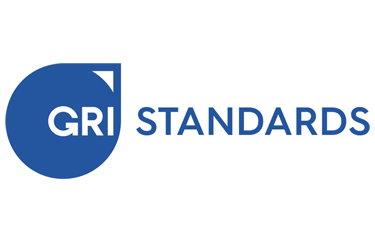GRI 13 creates new seafood sustainability reporting standard

The Global Reporting Initiative (GRI) has released the first global sustainability reporting standard for all companies in the production of crops, animals, and seafood for disclosure of shared economic, environmental, and social impacts.
GRI is an initiative organized by the Global Sustainability Standards Board, an independent, international organization that provides standards for sustainability reporting. The GRI standards are designed to aid companies in reporting on their economic and environmental impacts and their contribution toward sustainable development. The standards are designed to push companies to make connections between their impacts and the 17 United Nations Sustainable Development Goals.
GRI 13: Agriculture, Aquaculture, and Fishing Sectors 2022 was released on 28 June, 2022 and is one of the 40 planned GRI sector standards. It calls for companies operating in the agriculture, aquaculture, and fisheries sectors to make disclosures on their efforts to improve food security, land use and resource rights, wages and income, natural ecosystem conversion, animal welfare, soil health, and pesticide use. It also pushes companies to study the impact of their actions in causing biodiversity loss, and their work on climate adaptation. GRI 13 will come into effect for reporting 1 January, 2024.
“There is a paradox in that the ways we produce the food and materials that a growing population requires also result in numerous economic, environmental, and social impacts – which in turn put at risk the future viability of world food systems. Addressing this challenge requires concerted, global, and multi-stakeholder action,” Global Sustainability Standards Board Chair Judy Kuszewski said. “It’s clear that ‘business as usual’ by companies will not result in the sustainability transformation we need to see. Shining the spotlight on the most-significant impacts of organizations involved in crop cultivation, animal production, fishing, or aquaculture, GRI 13 brings the clarity and consistency needed to inform responsible decision-making. From safeguarding migrant workers to tackling overfishing, cutting emissions to halting deforestation, GRI’s agriculture, aquaculture, and fishing standard has an enabling role in charting the pathway to a sustainable future for these sectors.”
GRI 13 was developed by a1 9-member multi-stakeholder working group representing five constituencies: business, investment institutions, consulting sector and international organizations, labor unions, and civil society. Members of the working group included representatives from the Thai Union Group, Hong Kong Sustainable Seafood Coalition, Food and Agriculture Organization, and Fisheries Section of the International Transport Workers' Federation.
“The aquaculture and fishing sectors face unique sustainability challenges and we welcome the sector standard from GRI as a guide to reporters on what can be considered most material to these industries,” Hong Kong Sustainable Seafood Coalition Technical Advisor Jacqueline Dixon said. “A common approach to reporting will not only ensure these concerns are monitored and documented at a much larger scale, but will also enable comparability between reporters to ultimately move the industries forward on best practice.”
"GRI 13 “has an important role in driving up transparency and accountability on crucial issues by fishing companies around the world, ensuring a holistic view on traceability and complete information on fishing catch and feed procurement,” Margarita Lysenkova, a manager in GRI’s standards division, told SeafoodSource.
Investors and financial institutions, in particular, value GRI reporting because it helps them understand how a company manages non-financial risks and whether it adheres to key international expectations for responsible business conduct, Lysenkova said.
“That’s why it is significant that GRI 13 is aligned with international frameworks – including those set by the U.N. Food and Agriculture Organization, International Labour Organization, and International Maritime Organization – as well as being mapped to the Sustainable Development Goals,” she said.
Companies reporting to the GRI standards don’t get a certificate or a label, but rather a report based on the GRI standards, which gives consumers and other stakeholders a broad and comparable understanding of a company’s sustainability performance, including their governance, compliance with laws and regulations and working conditions, and their environmental impacts.
“GRI 13 also applies to purchasers and intermediary companies who buy seafood from fisheries or hatcheries,” Lysenkova said. “As such, buying organizations can rely on information disclosed using this GRI standard to understand impacts in areas such as [illegal, unreported, and unregulated] fishing, overfishing, or feed sourcing.”
As part of the GRI reporting process, it is recommended that companies report on the measures they are taking to ensure their supply chains are free of exposure to illegal, unreported, and unregulated fishing, and the measures they are taking to improve transparency and traceability in their supply chains, Lysenkova said.
The standard also covers transparency of catch by fishing companies – species caught, volume, method, location of origin, and stock status – to assess sustainability levels.
“This information is also requested from aquaculture companies using fish and fish products in feed and those relying on juvenile fish stocks in aquaculture products,” Lysenkova said.
World Benchmarking Alliance Food and Agriculture Lead Viktoria de Bourbon de Parme said GRI 13 will “improve impact reporting by creating a new global standard for companies that play an important role in our food system.”
“The so urgent transformation of this system requires large-scale and fundamental action, which can only be achieved with multi-stakeholder partnerships at local and global levels, as well as concise, transparent, and trustworthy reporting to hold food-production companies accountable,” Bourbon de Parme said.
Numerous members of the global NGO community welcomed the creation of the standard and its recent release.
“Companies in the agriculture sector must play a key role in the achievement of global goals for climate, forests, human rights, and sustainable development. By providing a comprehensive blueprint for standardized reporting on progress toward these goals … GRI enables downstream buyers, investors, financiers, civil society organizations, and other stakeholders to gather the information they need to make informed decisions related to company performance,” Rainforest Alliance Lead Scientist for Global Policy Leah Samberg said.






Share